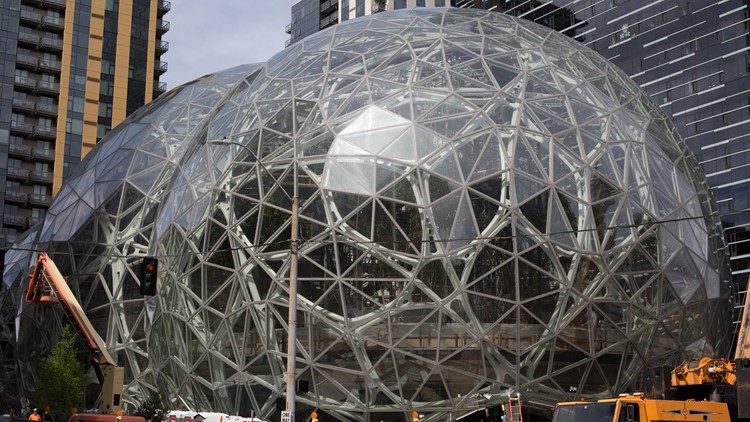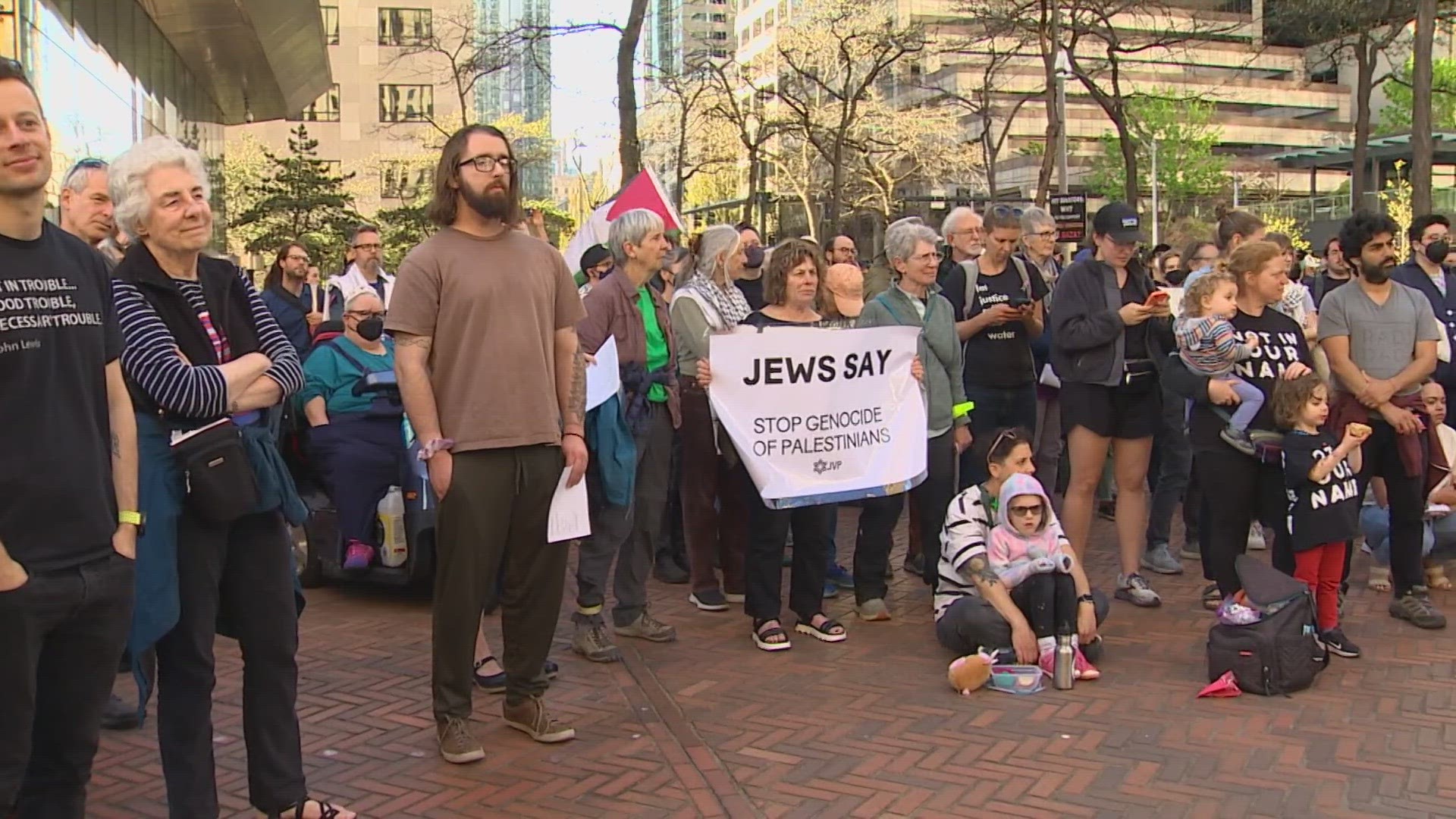SAN FRANCISCO — It’s an anniversary that hundreds of mayors and city managers are likely to remember: One year ago Friday, Amazon blew apart everything they knew about economic development when it announced it was looking for a second home that would bring with it 50,000 high-paying jobs and $5 billion in investment.
The search, unusual because Amazon has conducted it largely in public, has become a cultural meme, showing up in everything from "Saturday Night Live" skits to architectural graduation projects. It shook up the 238 cities that initially applied and has the 20 finalists on edge as they await word of whether they will reap the windfall — and have to cope with the potential downsides.
This type of corporate search for space almost always happens under the radar, with companies, cities and economic development agencies horse-trading out of sight over tax breaks, land use and other incentives. Projects are often announced only after a decision has been made.
Amazon instead posted its list of requirements and then let the offers roll in. The prospect of investment and bragging rights from securing what's now the world's most valuable company pitted tiny cities against metropolises, each striving to convince the Seattle company it had the right workers, transportation, culture and tax breaks. It was an effort built for the age of social media, when everything takes place in public and there is constant jockeying for top billing.
“Most corporations would never take an announcement like HQ2 and announce it as a public free-for-all,” said Barry Broome, CEO of the Greater Sacramento Economic Council, a public-private partnership that bid in the first round but didn’t make it to the second.
In his experience, companies usually contract quietly with a go-between like consultancies Deloitte or McKinsey. The proposed project is shopped around under an alias and a shortlist of perhaps 10 communities is chosen. The go-between then takes each through a secretive set of competitive exercises. Not until a final decision is anything made public.
Cities may think they win based on weather, culture and quality of life. But it’s usually down to the financial package, Broome said.
“Even companies that negotiated a $1 billion incentive package, the next day they’re saying they chose the city because of its amenities. But Amazon was brash enough to say straight out it was looking for talent, a cool place and an aggressive set of incentives that will actually impact its bottom line in a significant way,” he said.
Amazon has said it will make its selection by the end of the year, leaving the choice open from Los Angeles to Boston.
The company finished its site visits earlier this summer and is now crunching numbers and doing due-diligence checks in a tightly controlled process that has leaked nothing. But despite the radio silence from Seattle, the search continues to generate news nationwide.
Detroit, by Amazon
Architectural designer Cody Seipp spent almost 1,000 hours imagining one Amazonian future. He expanded on the idea of Detroit – one of the 238 cities that applied – as Amazon’s headquarters for his final thesis project at Rensselaer Polytechnic Institute. He created a 138-page booklet that is a whimsical imagining of Detroit in 2051, 33 years after the city gives Amazon full control over policies and redevelopment operations.
“It was kind of like an alternate reality, it was so much fun to run with it,” Seipp said from New York City, where he now works for architecture firm Studio Libeskind after graduating in the spring.
His imaginings included a headquarters building that is topped by a public park fashioned around Amazon’s smile arrow, a tower built like an Echo and an even larger biospheres dome to match the one outside Seattle headquarters. Seipp got an A, but no calls from Amazon.
He wasn't the only architect having fun with Amazon. In Newark, some boosters are saying repurposed buildings offered by many would-be HQ2s won’t cut it because they’re boring and have no identity.
“We believe that only excitement will induce Amazon to pitch their tent in Newark," said Joel Levin with Fifth Avenue North and Heller Manus Architects. Their twin, ziggurat-inspired buildings for downtown Newark would be self-powered from sustainable sources.
Secret, from the cities themselves
The “race to the bottom,” as it’s been dubbed by detractors, has seen cities offering up enormous tax credits and other incentives to entice Amazon to bring its high-paying jobs to town.
Almost none of them have told the public — or even their local city councils — the dollar amounts. This is legal because most of the deals were put together by local development agencies.
The few cities that have made information about their bids include:
- Montgomery County, Maryland, which offered an $8.5 billion tax incentive and infrastructure aid.
- Newark, New Jersey, where a local-state partnership bid offered $7 billion.
- Pittsburgh, Pennsylvania, which has approved local ordinances that would be worth $2 billion in tax breaks.
Georgia has hinted that its package is more than $1 billion but has not confirmed the number.
Even if cities hadn’t offered incentives (and all but Toronto are believed to have), the price tag would still be impressive. Delaware Online reports that Philadelphia had spent at least $545,000 simply to put together its bid for HQ2, including $245,000 on research, marketing materials and ads and another $300,000 for its nonprofit economic development entity, the Philadelphia Industrial Development Corporation.
Clues
Amazon has gone to great lengths to keep information about its decision-making process veiled in secrecy. The company asked the 20 finalist cities to avoid talking about the process or allow press to follow along as its teams visited over the course of the spring and summer. It followed up with emailed questions.
Many observers think the Washington, D.C., area, home to three of the 20 areas (Montgomery County, Maryland; Washington, D.C.; and Northern Virginia) seems a likely winner.
The reasoning generally includes several factors:
- Amazon CEO Jeff Bezos is in the process of renovating a mansion there with lots of room for public entertaining.
- Amazon continues to grow its lucrative cloud-computing business with the federal government.
- Amazon has stepped up its lobbying game as it has become a bigger company and to counteract President Donald Trump’s ongoing Twitter attacks on it for its deal with the U.S. Postal Service, and on Bezos, who owns "The Washington Post."
Any and all tea leaves are being avidly read by the cities waiting the decision.
One example: Just last week, Seattle-based Alaska Airlines announced it would begin its first-ever non-stop service between Seattle and Columbus, Ohio, in March. Columbus, one of the 20 finalists, was also one of the few that didn’t have direct flights to Amazon’s headquarters.
Local officials wouldn’t comment, and there are certainly other reasons for nonstop flights. Both Microsoft and Boeing, two major Seattle-area companies, have a presence in Columbus. But easy airline access between Seattle and the winner was one of the requirements in Amazon’s initial request for proposals.
Probably furthest afield was the rampant online speculation that Amazon's Super Bowl ad this year, about Alexa losing its voice, offered a hidden clue because it featured a woman asking for the weather in Austin. Amazon eventually quashed it, saying the two were unrelated.
That said, Amazon is known for making surprising decisions and seemingly wild bets. An example: When it first launched the Echo, the Alexa-enabled smart speaker, consumers weren’t quite sure what to make of it or what to use it for. Three years later, Amazon is the leader in a rapidly-expanding market.
Other effects
Other businesses are eager to make money off Amazon’s decision. A Seattle-based startup called CityBldr has already announced it will put an office wherever HQ2 lands.
The real-estate company uses an algorithm to find clusters of single-family homes in areas zoned for multifamily buildings. It then reaches out to the group of homeowners and offers to bundle their properties to sell to developers.
The search is changing politics. In Georgia, Republican and Democratic candidates for governor have agreed not to politicize the process, while current governor Nathan Deal has said he plans to call a special session of the state legislature if Atlanta ends up on the short list in order to discuss incentive packages.
In Texas, the Dallas Morning News has a weekly column on Amazon-o-mania, which looks at stories that might affect the state’s two contenders, Dallas and Austin, in the running.



